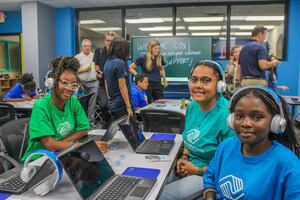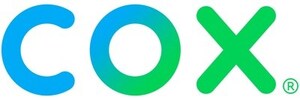Survey: Teens Don't Tell Adults When They Are Bullied Online
ATLANTA, Feb. 11, 2014 /PRNewswire/ -- In support of Safer Internet Day, a survey released today by Cox Communications and the National Center for Missing & Exploited Children says despite online bullying (also known as cyberbullying) being a serious concern for teens and their parents, many teens are not telling their parents about their experiences.
Key trends among the teens surveyed include:
- Three in 10 teens claim to have been bullied online (31 percent)
- One in 10 admits to have bullied someone online
- Of teens who admit to being bullied online, only 41 percent have told an adult
The survey results offer insight regarding the pervasive role the Internet plays in our daily lives.
- Teens spend as much time online each day as they spend in the classroom (nearly six hours)
- 83 percent log on to at least one social media site every day (Facebook and YouTube being the most popular)
Also, teens are sharing personal information or potentially inappropriate content online, including photos (73 percent), phone number (21 percent), curse words (21 percent), physical location (19 percent), address (12 percent) and sexual comments or pictures (five percent).
Cox is committed to encouraging safe and healthy online behavior among youth. With mobile devices providing a gateway to the Internet, teens are constantly connected — and therefore increasingly vulnerable. We hope these insights will help to educate adults on ways to protect children from potentially dangerous or hurtful interactions.
"The most helpful way to address online safety and bullying is through open communication with children about these issues," said John Ryan, NCMEC president and CEO. "That's why we were encouraged that more parents are having these conversations. By keeping an open dialogue, parents can increase the likelihood that their children will come to them when something makes them uncomfortable online."
According to the survey, 84 percent of parents of teens surveyed nationally have talked to their children about online safety at some point, and 77 percent have talked about Internet safety within the past year. This is a significant improvement when compared to Cox and NCMEC's 2005 survey which found less than 25 percent of parents were talking to their teens about Internet safety.
Teens are talking about online safety as well. During an online bullying roundtable with youth across the United States, teens shared their experiences and offered solutions for how they can address these issues in their communities. The roundtable was held in partnership with Characters Unite, the USA Network's award-winning public service program.
Like most Internet service providers, Cox Communications offers a variety of resources to keep families safely connected:
- Full survey results and tips on how to keep your kids safer online: www.cox.com/takecharge
- Additional tools, including free parental control software powered by McAfee for Cox High Speed Internet customers, a data usage meter and Cox Tech Solutions
- How to create a strong password
- Set parental controls on your Cox Digital Television or your DVR Cable Box
- E911 with Cox Digital Telephone
Note to journalists and bloggers: Additional graphic resources available at http://www.myaxiscox.com/Infographics/.
About the National Center for Missing & Exploited Children
The National Center for Missing & Exploited Children is the leading 501(c)(3) nonprofit organization working with law enforcement, families and the professionals who serve them on issues relating to missing and sexually exploited children. Authorized by Congress to serve as the nation's clearinghouse on these issues, NCMEC operates a hotline, 1-800-THE-LOST® (1-800-843-5678), and has assisted law enforcement in the recovery of more than 193,000 children. NCMEC also operates the CyberTipline, a mechanism for reporting child pornography, child sex trafficking and other forms of child sexual exploitation. Since it was created in 1998, more than 2.2 million reports of suspected child sexual exploitation have been received, and more than 105 million suspected child pornography images have been reviewed. NCMEC works in partnership with the U.S. Department of Justice's Office of Juvenile Justice and Delinquency Prevention. To learn more about NCMEC, visit www.missingkids.com. Follow NCMEC on Twitter (@MissingKids) and like NCMEC on Facebook (Facebook.com/MissingKids).
About Cox Communications
Cox Communications is a broadband communications and entertainment company, providing advanced digital video, Internet and telephone services over its own nationwide IP network. The third-largest U.S. cable TV company, Cox serves approximately 6 million residences and businesses. Cox Business is a facilities-based provider of voice, video and data solutions for commercial customers, and Cox Media is a full-service provider of national and local cable spot and new media advertising.
Cox is known for its pioneering efforts in cable telephone and commercial services, industry-leading customer care and its outstanding workplaces. For seven years, Cox has been recognized as the top operator for women by Women in Cable Telecommunications; Cox has ranked among DiversityInc's Top 50 Companies for Diversity eight times, including the last seven years. More information about Cox Communications, a wholly owned subsidiary of Cox Enterprises, is available at www.cox.com and www.coxmedia.com.
SOURCE Cox Communications
WANT YOUR COMPANY'S NEWS FEATURED ON PRNEWSWIRE.COM?
Newsrooms &
Influencers
Digital Media
Outlets
Journalists
Opted In






Share this article